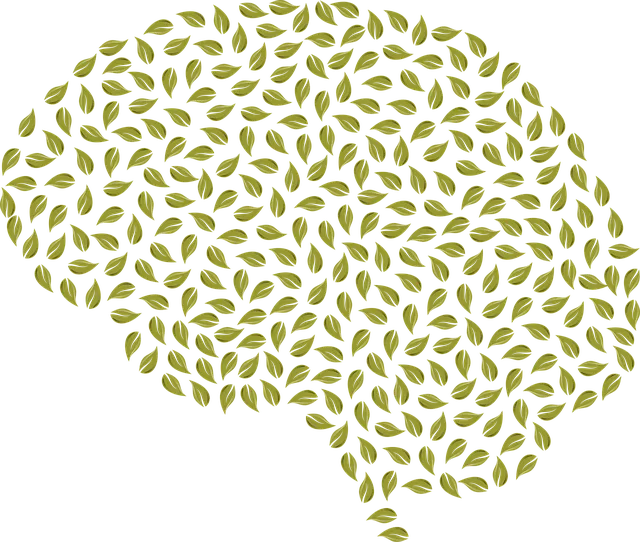The Lone Tree Kaiser Permanente psychiatry reviews highlight critical gaps in current mental illness diagnosis methods, especially for complex cases, emphasizing the need for more accurate and holistic approaches. They advocate for initiatives like Stress Management Workshops and Mental Wellness Coaching Programs that empower individuals with evidence-based self-care strategies. This proactive approach, combined with clinical assessments, improves diagnostic accuracy, enhances treatment outcomes, and fosters better communication between patients and healthcare professionals through self-awareness exercises. These practices address the challenges faced by mental health professionals in accurately diagnosing mental illnesses due to symptom overlap and dynamic fluctuations, ultimately leading to more effective treatment planning.
Mental illness diagnosis accuracy is a critical aspect of patient care, and continuous improvement efforts are essential. This article delves into the challenges faced by Lone Tree Kaiser Permanente in mental health diagnosis, as reviewed by their psychiatry team. We explore common pitfalls and offer evidence-based strategies to enhance accuracy, including advanced assessment tools, improved clinical training, and patient-centered care. Additionally, we discuss the role of community engagement and support systems in fostering a holistic approach to mental health, drawing insights from Lone Tree Kaiser Permanente’s experiences.
- Lone Tree Kaiser Permanente Psychiatry Reviews: Uncovering Challenges in Diagnosis
- – Examining the current state of mental health diagnosis at Lone Tree Kaiser Permanente
- – Identifying common pitfalls and barriers to accurate assessment
Lone Tree Kaiser Permanente Psychiatry Reviews: Uncovering Challenges in Diagnosis

The Lone Tree Kaiser Permanente psychiatry reviews highlight significant challenges in mental illness diagnosis, underscoring the need for more accurate and holistic approaches. These reviews reveal that traditional diagnostic methods often fall short, especially when dealing with complex presentations or subtle symptoms. This is where initiatives like Stress Management Workshops Organization programs and Mental Wellness Coaching Programs Development can play a pivotal role. By integrating evidence-based strategies such as self-care practices, these initiatives empower individuals to better understand their mental health and navigate challenges more effectively. This proactive approach complements clinical assessments, ultimately enhancing diagnostic accuracy and fostering improved treatment outcomes.
– Examining the current state of mental health diagnosis at Lone Tree Kaiser Permanente

At Lone Tree Kaiser Permanente, mental health diagnosis accuracy has been a topic of increasing concern and active review. The healthcare provider is committed to enhancing its psychiatric services, as reflected in numerous positive psychiatry reviews from satisfied patients. However, recognizing the nuances and complexities of mental illness, the facility acknowledges areas for improvement. Recent efforts have focused on integrating self-awareness exercises into patient care plans, aiming to foster better communication between patients and healthcare professionals.
Lone Tree Kaiser Permanente understands that Mental Health Awareness is paramount in accurate diagnosis. Through educational initiatives promoting positive thinking and coping strategies, they aim to empower individuals to recognize and articulate their symptoms more effectively. These proactive measures are part of a broader strategy to improve diagnostic accuracy, ensuring that patients receive the most appropriate care for their unique mental health needs.
– Identifying common pitfalls and barriers to accurate assessment

Mental health professionals face several challenges when it comes to diagnosing and assessing mental illnesses accurately. One significant barrier is the complexity of human behavior and emotions, which can often lead to misdiagnoses or delayed treatment. For instance, symptoms may overlap between various disorders, making it difficult for even seasoned psychiatrists at Lone Tree Kaiser Permanente to differentiate between them. This issue demands a comprehensive approach that considers not just clinical presentations but also individual experiences and unique cultural contexts.
Additionally, the dynamic nature of mental health means that symptoms can fluctuate, providing an incomplete picture during a single assessment. Building inner strength through self-awareness exercises and empathy-focused strategies is crucial for both patients and practitioners. By fostering open communication and encouraging individuals to articulate their feelings, Lone Tree Kaiser Permanente psychiatry reviews highlight the importance of understanding the patient’s journey. This holistic view enhances diagnostic accuracy and paves the way for more effective treatment plans.
The Lone Tree Kaiser Permanente Psychiatry Reviews study highlights critical areas for improvement in mental illness diagnosis accuracy. By uncovering common challenges and pitfalls within the current assessment practices at Lone Tree Kaiser Permanente, this review serves as a valuable resource for enhancing diagnostic reliability. Further research and collaborative efforts are needed to address these barriers, ultimately improving patient care and outcomes for individuals facing mental health disorders.






